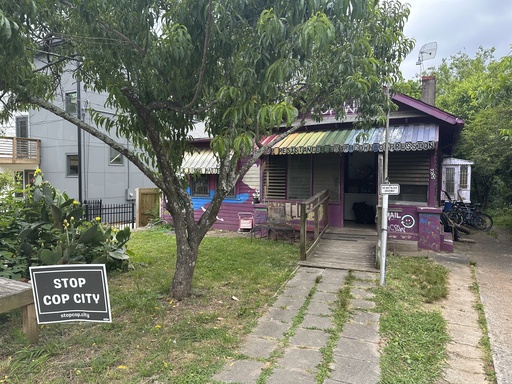A judge in Georgia reprimanded state prosecutors for mishandling confidential emails between a defense attorney and three Atlanta activists facing racketeering charges related to protests against a proposed police and firefighter training center known as “Cop City.” Judge Kimberly Esmond Adams criticized the Georgia Attorney General’s Office for allowing privileged attorney-client emails to be mistakenly included in a large collection of evidence given to investigators and defense attorneys representing 61 defendants charged in a racketeering indictment.
During a hearing, defense attorneys for Marlon Kautz, Adele MacLean, and Savannah Patterson asked Adams to disqualify the state prosecutors from the case and dismiss the indictment due to the serious error. The defense stressed the need to send a message that such mistakes cannot be tolerated, though they acknowledged that the prosecutors’ actions were not intentional. The judge expressed concern over the investigators’ conduct and questioned the credibility of the prosecutors’ claims of ignorance regarding the inclusion of confidential emails in the evidence.
Prosecutors admitted the mistake but emphasized that the intelligence report containing the emails had not been read by investigators. They argued that since the error was accidental, it should not lead to disqualification. Defense attorney Don Samuel revealed that he had urged prosecutors to establish a filter team to review evidence and safeguard confidential communications, but no action was taken, leading to the current situation.
The three activists from the Atlanta Solidarity Fund were arrested in May 2023 on charges of money laundering and charities fraud, and later included in the racketeering indictment last August. The indictment targeted the fund for allegedly funneling money to support violent activities against property in Atlanta, including the site of the controversial training center. Civil rights groups and demonstrators have criticized the charges, accusing the Georgia Attorney General of attempting to stifle a movement that opposes the project’s negative impact on the environment and police militarization in a predominantly Black neighborhood.
Regardless of the opposition and previous attacks on the construction site, work on the training center has continued, with advocates emphasizing the need to update facilities and provide better training for law enforcement officers. Samuel highlighted that the mishandled emails contained crucial information on legal strategies, money laundering laws, and Georgia’s Racketeer Influenced and Corrupt Organizations (RICO) law. The judge is reviewing the situation, urging prosecutors to consider the implications of proceeding with such a significant indictment.
